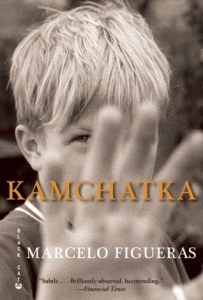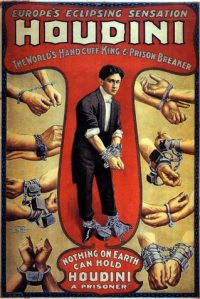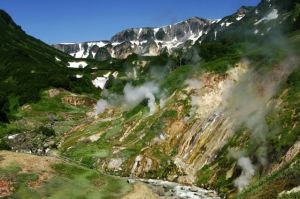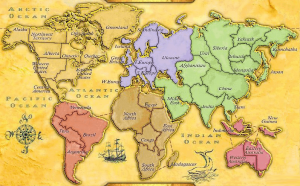 Kamchatka is a novel by the Argentinian writer Marcelo Figueras set in 1976, one year during a disturbing era of Argentinian history under military dictatorship, often referred to as The Dark Ages, a time when speaking out against the establishment gave rise to a terrible number of “Disappeared”.
Kamchatka is a novel by the Argentinian writer Marcelo Figueras set in 1976, one year during a disturbing era of Argentinian history under military dictatorship, often referred to as The Dark Ages, a time when speaking out against the establishment gave rise to a terrible number of “Disappeared”.
Ordinary people vanished without trace, neither arrested nor imprisoned, there was no record of their detainment, they simply disappeared, believed to have been disposed off.
In an interview with Stu a huge reader of translated fiction who reviews at Winston’s Dad, Marcelo Figueras said this about his own experience as a child growing up in those years, words that are clearly an inspiration for the novel he has written:
“On the one hand, I was the typical boy on the verge of adolescence: shy, introspective, living in a bubble made of books ,music, comics, TV and movies. I played Risk a lot. I watched The Invaders. I enjoyed Houdini, the movie with Tony Curtis and Janet Leigh, but rejected its sad, sad ending. I fell in love every day. I danced alone.
But on the other hand, I lived in fear. I knew nothing about what was happening, my family had always been apolitical. In spite of that, I sensed something awful was going on: it was everywhere, even in the air, atoms of fear mixed with oxygen and nitrogen.
That was one of the main ingredients of the military Junta’s perversity: they tried to keep the appearance of normality, Buenos Aires’ streets were calm and orderly (and filled with policemen), as if nothing out of the ordinary was really happening. But people were being kidnapped in the dark, locked in dungeons, tortured and killed, and their bodies hidden in massive, anonymous graves or dropped into the sea. So something wicked was indeed happening. And my nose picked it up somehow.”
The author goes on to say that the subject has been written about by many authors and in his opinion many of those stories follow a similar trajectory of a romantic young man or woman, their involvement in politics, a kidnapping occurs, torture, death and the law courts follow.
He wanted to do something different, to write about what those who were not kidnapped endured, a different horror. By making a 10-year-old the narrator of his novel, he puts the reader right into this fearful and confusing situation of sensing being in danger and yet understanding nothing about where that fear is coming from.
 Early on in the novel, our narrator and his younger brother, whom he affectionately refers to as The Midget, are pulled out of school abruptly by their mother and they go on what she describes as a holiday, to stay in a safe house.
Early on in the novel, our narrator and his younger brother, whom he affectionately refers to as The Midget, are pulled out of school abruptly by their mother and they go on what she describes as a holiday, to stay in a safe house.
The boys are told to choose a name for themselves, to change their identity and after finding a book about Harry Houdini on top of a cupboard, our narrator calls himself Harry and decides he wants to become an escape artist, something he goes to great lengths to tell us is very different to being a magician.
“Since the uncertainties of the present weighed heavily on me, I had been spending a lot of time thinking about my future. The idea of becoming an escape artist struck me as clearly as a vision: once the notion was firmly planted in my brain, all my worries disappeared. Now I had a plan, something that would, in the near future, make it possible to tie up the loose ends of my circumstances. I imagined that Houdini himself had done much the same thing. ”
The stay doesn’t feel like a holiday to Harry, however he passes his time doing the things he enjoys, playing Risk with his father, a post colonial game of strategy to take over the territories of the world. Harry wants to conquer but he never does, his father believes it is important he learns how to win through continual practice, not to have victory handed to him.
Finally the match occurs where Harry begins to win, he pushes his father back, gaining all but one last territory, that last bastion of strength, Kamchatka. He fails to take it and from that moment on his fortune turns. Kamchatka is this place on the map that few have heard of, but it contains a hidden strength and it is both a figurative place Harry will return to in later years and a physical landscape of extraordinary elements that he will also visit.
Our Harry is very curious and intelligent and the book is structured into sections like lessons from a day at school. In each of these parts he reflects on philosophical ideas, covering subjects the book is divided into, biology, geography, language, astronomy and history. These reflections were one of the magical parts of the book for me, I recognise that beautiful curiosity of a young mind, trying to make connections between what he knows and what he thinks might be, growing his brain on the page.
“Sometimes I think that everything you need to know about life can be found in geography books. The result of centuries of research, they tell us how the Earth was formed…They tell us about how successive geological strata of the planet were laid down, one on top of the other, creating a modem which applies to everything in life. (In a sense too, we are made up of successive layers. Our current incarnation is laid down over a previous one, but sometimes its cracks and eruptions bring to the surface elements we thought long buried.)”
Most of the narrative takes place in this suburban exile for the period that the two boys are with their parents, during that time they invite their Grandmother to visit, a formidable woman who doesn’t get on with her daughter and whom The Midget plays a deathly trick on.
There is a swimming pool and often the boys find a dead toad floating within it, so they devise a method for the toad to escape, hoping to improve the genetic selection of toads, as only the intelligent will figure out how to escape. It is a child’s game invested with hope.
And Kamchatka?
“The last thing Papa said to me, the last word from his lips, was ‘Kamchatka’.”
I thought this book was incredibly well told, the voice of the child narrator was so authentic and believable, his curiosity, frustrations and fear penetrate the pages and make the reader feel it all. You can’t help but read the book with a certain amount of tension, not knowing what the outcome will be. I was left wanting to read a sequel, to know how Harry coped and lived in the teenage years that would have followed, when life must have been so different to everything he and The Midget had known up until then.
A 5 star read for me, highly recommended.
The book was short listed for the Independent Foreign Fiction Prize in 2011.
A Note on That Place Called Kamchatka
 In the easternmost region of Russia, eight time zones from Moscow, closer to Japan than most of Russia lies the region and peninsula of Kamchatka. A land of legends and a kingdom of bears. The region is stunning to look at and sees all the elements come together, snow topped hills, ramblings brooks, luscious greenery and volcanic vapours, yes there are frequent volcanic eruptions and earthquakes.
In the easternmost region of Russia, eight time zones from Moscow, closer to Japan than most of Russia lies the region and peninsula of Kamchatka. A land of legends and a kingdom of bears. The region is stunning to look at and sees all the elements come together, snow topped hills, ramblings brooks, luscious greenery and volcanic vapours, yes there are frequent volcanic eruptions and earthquakes.
I realised some days after finishing this wonderful book that I knew about Kamchatka because some months ago my son made me go with him to see a stunning documentary at the cinema called ‘Terre des Ours’ which is set right on the heart of Kamchatka, a territory that is the home of brown bears, who only come out of hibernation for 3 months of the year and during that time they leave the snow topped mountainous regions and traverse the lava fields and go down to the river and lakes which are heaving with salmon. They must eat enough to get them through the next hibernation and the female bears have an even more challenging role as they have to catch enough for themselves and their offspring, while fending off the attentions of the lone male bears.
Below is a one minute trailer that show you a little of that magical world. The film is brilliant, sadly I don’t think it is available in English, the voice over is done by Marion Cotillard. But do watch this snippet, its magic.


This sounds like a really wonderful novel, I love the sound of Kamchatka the place too.
LikeLiked by 1 person
The book is great and the peninsula of Kamchatka, while it is used more as a metaphor in the book, is an extraordinary place of natural beauty and survival for that beautiful bear population. It is rare to come across such a little known wilderness.
LikeLiked by 1 person
I will read this book since I will be going to Argentina in March!
Judy
LikeLiked by 2 people
Wow, that’s brilliant Judy, what a great idea, not only because it’s a great book, but to have knowledge of contemporary Argentinian literature before visiting there. I have never been to that part of the world, I would so love to one day. In the meantime I will look forward to hearing about your visit for sure.
LikeLike
Claire this is great, I can’t wait to read it. We’ve travelled to BA Argentina, and my husband has distant family who live there during that terrible time.
LikeLiked by 1 person
Valorie, you have family connections everywhere I read! It’s wonderful, no wonder you have such a rich reading experience , having a vested interest in wanting to understand how it was for people who lived in those places. I love that stories like this, while heartbreaking, allow us to understand more deeply what lies beneath the layers of experience of inhabitants of countries. I am sure it leaves a mark on the psyche of people collectively as well as individually.
LikeLike
As a boy, I loved playing a Risk so whenever I hear Kamchatka I think of the game as well. I’d really like to read this novel. Such a clever way of approaching the subject matter and showing how fear functions living under such a regime. The documentary sounds excellent as well. I hope it’s made available with English subtitles.
LikeLike
I wondered if I was going to stumble across anyone who knew the game. I do hope you add this one to your list Eric. 🙂
‘Terre des Ours’ is as good as any of the David Attenborough documentaries and visually narrates a wonderful story following a young male surviving his first post-hibernation spring on his own and a mother with her two cubs. It was filmed in 3D though we saw it in 2D (my son doesn’t like the glasses) and is brilliant. I couldn’t see if it was available with subtitles. I do hope so. I’m sure you’ll enjoy it.
LikeLike
Gosh, what a horrific era to have lived through and so recent too. I’m not usually a fan of child narrators, but Harry’s voice seems very mature (looking at the quotes, he sounds much older than ten!).
LikeLiked by 1 person
Interesting you say that Jacqui, I pondered that myself, but then I have an 11-year-old who is like a walking encyclopedia about the things he is passionate about, the memory retention is incredible.
At times in the book, the adult Harry narrates as well.
Yes, this morning as I walked to take my son to rugby, I kept thinking about how recent this all was, and then I thought of all those countries where terrible things continue to play out even today. There is a thinner line than we imagine between the quiet life and authoritarian madness.
LikeLike
Ah, fair enough! It’s good to hear that your son has a passion for learning and absorbing information like that – it sounds as though he has an inquisitive and questioning mind.
LikeLike
I read this such a long time ago that I’d forgotten all about it until your excellent review, Claire. Thank you for reminding me of it – I must pull it off the shelf. And the film clip was the icing on the cake. Boy, those bears can move!
LikeLiked by 1 person
I guess you probably read it when it was short listed for the 2011 IFFP prize, it was certainly before I had many blog connections and therefore I had never heard of it. I believe the author also gave a reading in 2010 at the Edinburgh festival, Grant mentioned he had heard him speak.
I am glad you enjoyed the film clip, I love re-watching it too, a truly spectacular heart warming, documentary, sadly not the kind of thing that is common at the cinema today, I don’t know that it even made it to an international audience. It’s magnificent.
LikeLiked by 1 person
This novel sounds extraordinary! I’m always fascinated by novels for adults where the main characters are children. And Terre des Ours looks great! I definitely would like to see that. I think my husband would too. Will keep you posted on what we think of it once we’ve seen it. 😉
LikeLiked by 1 person
I think you’d really enjoy the book Deidre and the film absolutely, especially since it is narrated in French. Do let me know how you find it after viewing.
LikeLike
I sure will. I showed the clip to my husband last night and he was interested too. Love watching bear cubs. Have you seen L’Ours? Pretty good too.
LikeLike
Thank you for introducing me to this writer. I was born and raised in Argentina so I know a lot about this dictatorship. I am much younger than this writer so I did not have that sense of what was going on back then. Unfortunately, the situation in Argentina continues to be bad due to the corruption of the government which is involved in mafias.
LikeLiked by 1 person
Thank you Julia and I am pleased to let you know of a contemporary Argentinian author being translated into English. You’ll be able to read the original version, even better!
Yes, just yesterday there was article in The New Yorker about Argentina today, implying exactly just that which you speak of:
A Very Argentinian Mystery
LikeLike
We have a movie theatre here that shows only documentaries. I am going to mention the film you saw to the manager. Maybe they’ll get it. And I am definitely going to read this book. I am almost finished The Bees. I don’t want it to be over, I have loved it so much. Thank you again for that review.
LikeLiked by 1 person
So glad you loved The Bees Fransi, I was absolutely captivated by the world Laline Paull created and the instincts of Flora 717, beautifully imagined.
Wouldn’t that be wonderful if your cinema showed the documentary Terres des Ours, it came out about a year ago, so it should be available, I’m not sure if it has English subtitles, but I am sure the cinema manager will be able to find out. They absolutely should, it must have cost a lot to make it and its spectacular!
LikeLiked by 1 person
Me too, Claire. Honestly I don’t know how Laline could have imagined that world but she did — and so beautifully. It would make one hell of an animated film — not a cartoon, but a film. I will let you know if I get to see the documentary.
LikeLike
Beautiful review, Claire! I now understand why the novel is called ‘Kamchatka’ – the last unconquered land. I don’t think I have read an Argentine novel. I hope to read this one. Thanks for this beautiful review and introducing a new-to-me author. I also loved that video. Kamchatka is one of the places that I want to visit. This video is so beautifully made. I hope I can get to watch this documentary. I hope it comes out as a DVD.
LikeLiked by 1 person
So happy to add an Argentinian book to your list Vishy, I think you’ll enjoy this one. Isn’t that video of the bears wonderful! I don’t know if it is available in English, but it is wonderful to listen to in French and its a story that is largely told through images anyway. I am sure it is already out in DVD as it was at the cinema about a year ago.
LikeLike
Great review – brought back memories of reading the book when it was published. You might be interested on another take on dictatorship from a child’s point of view, The Book of Words by Jenny Erpenbeck.
LikeLiked by 1 person
Thanks for the recommendation, I have her book The Visitation on the shelf and recall hearing about this volume as well, will definitely add it to my list of reads, 2015 is shaping up well for enticing translations, I am so grateful to have so many wonderful readers giving me recommendations.
LikeLike
Sounds like a great book….I read the review of it way back in June 13 2011 in The New Yorker. Your review is better!
LikeLike
Pingback: The Rabbit House by Laura Alcoba tr.Polly McLean #WITMonth – Word by Word